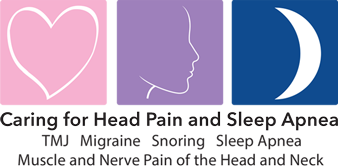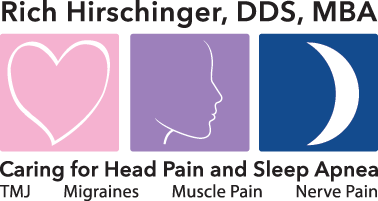

Diplomate American Board of Orofacial Pain
9615 Brighton Way, Suite 323
Beverly Hills, CA 90210
888.981.8981
FAQ: Frequently Asked Questions
 What is orofacial pain?
What is orofacial pain?
Is orofacial pain considered a specialty?
How do orofacial pain doctors approach care differently than other doctors who claim to treat TMJ and other chronic pains in the head and neck?
If you are a dentist, why don’t you also treat teeth?
What types of pain do orofacial pain doctors treat?
What type of jaw issues do you treat?
Is your treatment covered by medical or dental insurance?
Since you are dentist, why are most procedures covered by medical treatment?
How does orofacial pain differ from dental pain?
What does TMJ stand for?
Why do dentists treat orofacial pain instead of physicians?
Is there such a thing as a TMJ specialist?
Can any dentist treat orofacial pain?
Is there any type of easy and quick treatment for TMJ?
What type of headaches do you treat?
What type of nerve pain do you treat?
What is orofacial pain?
Orofacial pain, also known as OFP, is the treatment of the muscles, nerves, and supporting structures of the head and neck using conservative and usually reversible procedures. Most orofacial pain doctors do not treat teeth since chronic pain is not related to how your teeth fit together. Yes, if you clench your teeth, it can cause muscle pain but there is a way to treat patients who clench without drilling their teeth.
Is orofacial pain considered a specialty?
Orofacial pain is considered a specialty in the state of California. Several major dental schools have a full time, two year residency in orofacial pain, and the Council on Dental Accreditation (CODA) has started accrediting some of the residency programs such as UCLA and Kentucky. No residency at a United States dental school exists for neuromuscular dentistry. Dr. Hirschinger was the first graduate from UCLA after it received CODA accreditation.
How do orofacial pain doctors approach care differently than other doctors who claim to treat TMJ and other chronic pains in the head and neck?
We do not think that teeth need to be adjusted to help our patients. Many doctors treating chronic head and neck pain patients will start by drilling the patients teeth, which is known as an occlusal equilibration, or by having them wear a dental appliance 24 hours a day for several months to get the "muscles to relax. This appliance can, and does, change the patients bite, which can lead to the patient needing very extensive and expensive dental treatment to make the teeth together to match the new bite. OFP doctors do a through examination and come up with a diagnosis before treatment is started. We try to find the cause of the pain, and how we can help our patients using conservative procedures without drilling teeth, without making the patient wear an appliance 24 hours a day for several months, and without trying change how the teeth come together. Most doctors treating chronic head and neck pain patients agree that muscles are the cause of the patients pain. However, OFP doctors treat the muscle pain by treating the muscles. Neuromuscular dentists treat the muscle pain by treating the teeth. The OFP approach is conservative and does not involve grinding teeth. The neuromuscular approach is very aggressive and does involve grinding teeth.
If you are a dentist, why don’t you also treat teeth?
We work with many general dentists and dental specialists. Since we do not believe the origin of most chronic pain in the head and neck is related to the teeth, we let the general dentists and dental specialists treat any tooth related issues, and we focus on the muscles and nerves to reduce the pain our patients experience.
What types of pain do orofacial pain doctors treat?
We treat headache, head and neck muscle pain, nerve pain throughout the head and neck, certain ear pains, and TMJ.
What type of jaw issues do you treat?
We treat jaw issues such as pain in the jaw from a limited opening, which can be caused by muscles or a disk that is out of place. We treat patients whose jaw is stuck open and are unable to close their mouth, jaws that deflect to one side during opening, jaws that deviate to one side and then return back to the midline during opening, certain types of earaches that feel like they are coming from the jaw. But we only treat patient's with pain. We do not recommend anyone have invasive treatment for any clicking or popping of the joint.
Is your treatment covered by medical or dental insurance?
Almost all of our treatment is covered by medical insurance. Some procedures might be covered by dental insurance but it depends upon your plan.
Since you are dentist, why are most procedures covered by medical treatment?
Orofacial pain doctors treat muscles, joints, and nerves of the head and neck. Since these types of treatment do not involve the teeth, they are considered medical treatment. Any treatment that involves the teeth is considered dental treatment and is covered under dental insurance.
How does orofacial pain differ from dental pain?
Dental pain tends to be acute pain that can be easily relived with treatment of the tooth or gums, or by having the tooth that is causing the pain extracted. If the tooth was the cause of the pain, the pain will very shortly decrease and stop causing pain. Treating the tooth will have no effect if the pain is chronic and not from the tooth. Patients can be adamant that the pain is coming from a certain tooth but if the pain is from something other than the tooth such as a muscle or a nerve, a procedure such as a root canal or extracting the tooth will have no effect on the pain felt by the patient.
What does TMJ stand for?
TMJ stands for temporomandibular joint. Everyone is born with two TMJ’s since it is actually a body part just like the knee is a body part. However, most people think it is a diagnosis. Most patients that think they have something wrong with their TMJ are actually suffering from muscle pain that refers pain to the TMJ joint or to the surrounding area.
Why do dentists treat orofacial pain instead of physicians?
There is a lot of crossover in the field of orofacial pain into medicine. Since we treat nerve pain and several types of headache, a strong foundation in neurology is essential to help diagnose and treat head and neck nerve pain. We receive referrals from neurologists, ear, nose and throat specialists (ENT’s), and many other physicians since they do not treat the types of pain that we treat.Is there such a thing as a TMJ specialist?
No. Any doctor can treat TMJ, and there is no current program that considers TMJ a specialty. However, orofacial pain doctors focus their treatment on conservative and mostly reversible procedures. We caution against anyone seeing a doctor who wants to treat TMJ by grinding your teeth or changing the way your teeth come together since once that type of treatment is started, the tooth structure that is removed cannot be put back.Back to top
Can any dentist treat orofacial pain?
Legally, yes just like any dentist can perform root canals, do gum surgery, fix broken jaws, etc., but since we don’t treat teeth, we recommend patients see an orofacial pain doctor for chronic head and neck pain since we have several years of additional training, and we do not think with a dental drill as a type of treatment option.
Is there any type of easy and quick treatment for TMJ?
The short answer is usually “no.” As stated above, TMJ is a body part so it depends what is causing the pain the patient is experiencing. The pain can be from the muscles of the head and neck, from nerve pain, or from the disk that is between the jawbone and the skull. We caution against anyone who wants to change your bite on a long-term basis as a way of treating pain in the TMJ.
Back to topWhat types of headaches do you treat?
We treat any headache that is a primary headache such as migraines, tension-type headaches, cluster headaches, etc. Primary, in this case, means there is no known cause of the headache such as a tumor, a ruptured vessel, or any type of disease.
What type of nerve pain do you treat?
We treat a lot of different nerve pains such as trigeminal neuralgia, glossopharyngeal neuralgia, nervus intermedius, trigeminal neuropathies, burning mouth syndrome, neuromas, and atypical facial pain.






